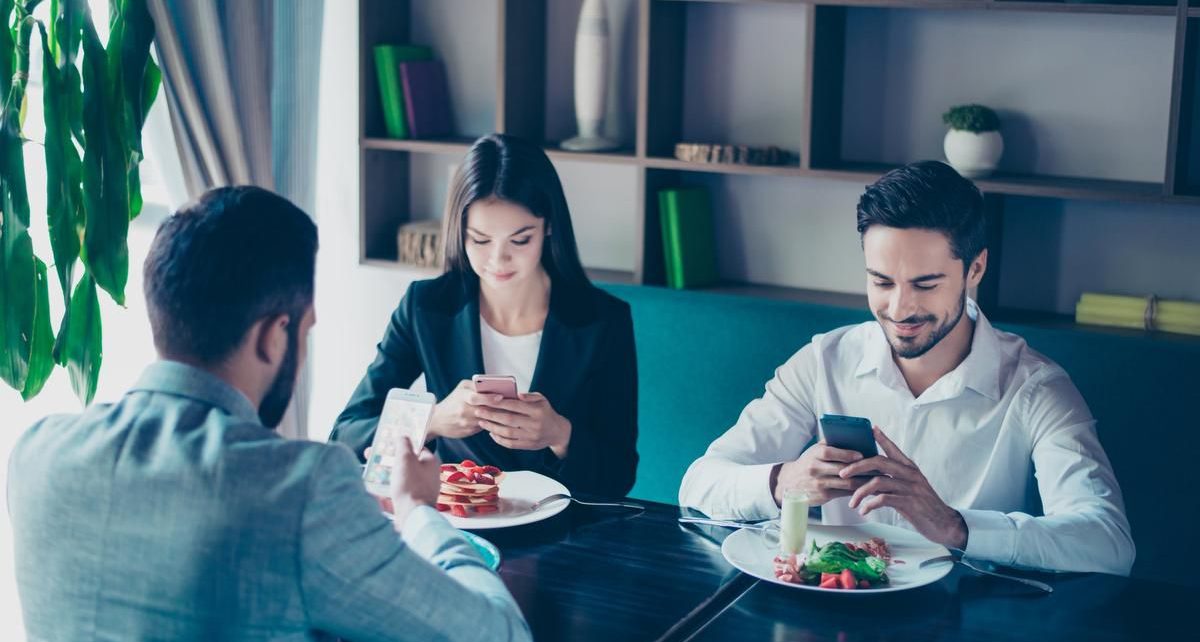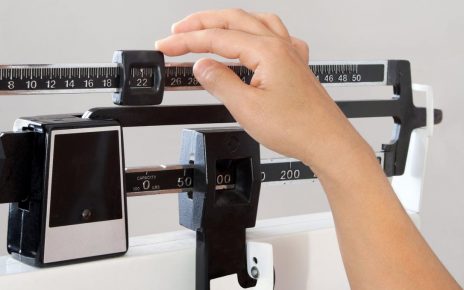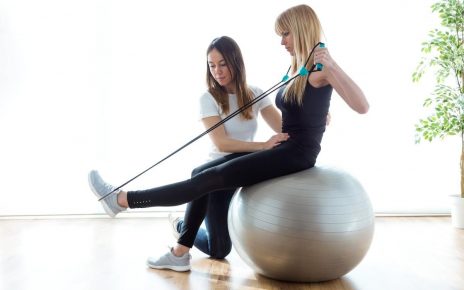A few weeks ago I wrote an article in the Toronto Star on reducing cellphone addiction.
I shared how I was addicted to this tiny little rectangle glued to my leg and a few ways I’m combating the disease.
Well, that article ended up getting more responses than any article I have written for The Star.
Ever!
So today I wanted to share some of the feedback, stories, and ideas I heard from you.
First, Michael amplifies the problem:
“Hi Neil, I sincerely hope your article in the Star doesn’t fall on deaf ears. It has some good points for those aware of any possible cellphone addiction. It seems in this world we live in now, where our attention span has diminished dramatically, we’re vulnerable to more and more addictions, i.e. extreme conditions. When I was a young man, we never talked about addictions. Drinking and driving wasn’t even a crime. Going into a bar full of cigarette smoke was an everyday hazard. For the first 50 years of my life, a large proportion of men celebrated the exploits of sex addicts because they had been socialized to treat women as sex objects. Only in the past few years have men themselves started to abhor the exploits of individuals like Harvey Weinstein and Bill Cosby. Times have changed for the better, for sure.
Of course, we now have other addictions, including the one you refer to. I fear that it is going to take time for us to come to terms with it. Why are parents no longer controlling how much time their young kids are spending on their cellphones and tablets? Probably, because they spend so much time themselves using the same devices and feel utterly hypocritical broaching the subject with their kids.”
It’s a good point. It’s hard to be a critic when you’re part of the problem. The mirror isn’t always pretty.
Barb expands:
“Cellphones weren’t around for all of our existence; i.e. centuries. We are not robots; we have hearts and minds and are social animals. As Jennifer Aniston rightly said, they couldn’t do a Friends reboot because no one would talk anymore because they’d be looking at their cellphones. This is insanity spending many hours a day on a 4-inch contraption instead of talking to another human being. We know people who are all on their phones in the same house; sad. People need to turn them off, always, in a restaurant (surely they can spend an hour without one), and at all meals everywhere including home. They need to leave them at home when walking the dog (looks ridiculous and they’re missing life all around them and it’s dangerous). Work sites need to be turned off before supper; i.e. the work day has ended. We sure don’t want to read an impersonal Kindle to a child instead of a beautiful book; the pendulum has to swing back a bit or there won’t be anymore book stores or other stores in malls to go to; very sad.”
OK, Barb, thanks for stepping in. Amen! So what do we do about it? Jason offers a few solutions he uses:
- Put iPhone permanently on “do not disturb” (moon icon) so you have to consciously interact with it.
- Yes to alarm clock. Take it further by leaving iPhone in a kitchen drawer overnight.
- In the morning, don’t retrieve iPhone until after breakfast and shower routine.
- Leave iPhone at home when you go on short jaunts like yoga class (especially!), grocery shopping etc.
- Ride, walk or whatever to a park for an hour or two and leave iPhone at home. “
OK. We know these things. We want to do these things. We try to do these things. But maybe sometimes it takes somebody to lay down the law for us. Maria is a college professor who offers her solution:
“I teach creative writing and I don’t allow cellphones in the class (3 hours). My students are shocked at this and are not at all sure they can go that long without checking their phones, so I say, ‘If you have to use your phone just go into the hallway, take care of whatever, and return.’ Then I insist they put their phones in the purse or knapsack — out of sight, out of mind.
After a few classes (my goal is to keep those classes very interactive, very engaging, very creative) all students are completely capable of not checking their phone for 3 hours. Of course, they’re on their phones again as soon as class is over to see what they missed — but that’s educational too, to see that a few texts, FB msgs, updates, missed calls are not that important.
Obviously class participation is high and without cellphones, the students are ‘forced’ to interact with each other without Googling a word or idea; they’re ‘forced’ to look at each other when critiquing a student’s work and that helps them to see the effects of their suggestions/comments on others; they’re ‘forced’ to listen when another student is reading her/his work, and consider their use or words, and respond thoughtfully.
Cellphones isolate us as much as they connect us. I worry about the number of students who believe they cannot be in class without access to their phone. I had one student drop the class because of the no cellphone in the class rule. Creating a time/place where we are cell phone-free is a good lesson to show us that we can break the addiction.”
Thanks Maria. Are you a lord in power? Can you shackle us up? There’s an Austin, Texas based movie chain called Alamo Drafthouse who kicks out patrons using cellphones.
Other solutions? Roseanne offers one more:
“Hi Neil. I just read your article in the Toronto Star. Excellent! It happens that today I attended a presentation in Gravenhurst about this very topic. In addition to your six interventions, Dr. Paul Mohapel, PhD at UVic, states that research points to Mindfulness Meditation Practice as a scientifically proven intervention. That is, if we can put down our devices for even a few minutes several times a day, we can reverse the deleterious effects these devices have on our prefrontal cortex. I am 55 and I remember life before all these devices. I feel lucky to have grown up playing with friends, minus the iPhone. It is sad to see adults and kids always looking down even when together at dinner. Maybe if we adults grow up a bit and take your advice, we can save our kids from themselves.”
Save our kids from themselves. Save us from ourselves! And if your torturous relationship is going too far off the rails, we can Sam and take the Luddite approach.
She writes:
“Hi Neil! I saw your column in The Star. Here’s my take on it, promise you won’t laugh out loud if you’re in a public place!
I’ve never had a smartphone, I do have an old 15 yr. old flip phone (Samsung X497) … Google that for more chuckles! 1-inch screen, no Bluetooth, no camera, no internet …. I use it to make/receive calls/texts. (And yes, it takes me longer than what is considered normal these days to send a text). My original flip phone was a Samsung X426, very sleek & sexy back in 2005. Gotta few newer ones over the years on eBay. Then the calendar on it ran out (in 2014) I think, so I ‘upgraded’ myself to the Samsung X497. A tad thicker, but the calendar on it goes til 2027 or something. Surely by then, I’ll have gotten a smartphone … or not!
I take the GO train twice daily, Mon. thru Fri. Between that & walking (8 hrs. Mon. thru Fri.) in downtown TO … all I see is people with their heads down, eyes glued to their smartphones. I find it very sad (nobody knows how to communicate face to face anymore) & scary. People are soooooo disconnected from society. I can’t tell you how many times a week I need to get out of someone’s way when walking as they barrel right towards me, never glancing up. In my never-to-be humble opinion, people with smart phones are either talking on them, looking down/using them or just carrying them in their hands (listening to music or waiting for that all important text, call or email). I never wanna be like that. I have a laptop at home & a desktop at work, along with my old flip phone, that’s enough for me.
You may have guessed by now, but I’m not on Facebook, Instagram, Twitter, Skype, Snapchat, etc. I guess I’m mostly ‘off-the-grid,’ but I like it like that.”
Thanks Sam. And thanks for the barrel of thoughts from so many of you. And now it’s me again.
Basically, the problem is real. I didn’t start writing this column to talk about cellphones. My deal is happiness! Living a good life. Cellphones just kept interfering in my research and writing topics. They are elbow-jabbing their way in and many of us are looking for a way out.
My next question is technology. Can we use fire to fight fire? I know apps like Momentum (which sets me back onto my daily goal when I veer off) and Moment (which counts how much time I’m on my phone each day) help me wage this war.
Do you have a tool, app, or resource that’s helping you?
Drop me a line at [email protected] and let me know.
As Barb wrote: “We sure don’t want to read an impersonal Kindle to a child instead of a beautiful book; the pendulum has to swing back a bit.”
So let’s swing it back.
Neil Pasricha is the bestselling author of The Book of Awesome and The Happiness Equation. His new podcast 3 Books is a Top 100 Ranked iTunes Podcast where each chapter uncovers and discusses the three most formative books of inspiring individuals. Check it out at www.3books.co.






